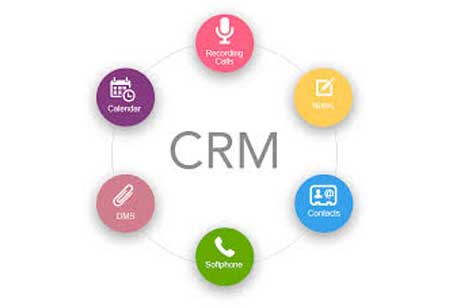THANK YOU FOR SUBSCRIBING
The Ways of Successfully Implementing the Right CRM Solution to Achieve Business Goals
The right CRM solution may facilitate personalizing the customer's journey by providing automated, timely, targeted communications to the customer. Here are few useful tips to successfully implement a CRM strategy

By
Apac CIOOutlook | Tuesday, February 11, 2020
Stay ahead of the industry with exclusive feature stories on the top companies, expert insights and the latest news delivered straight to your inbox. Subscribe today.
The right CRM solution may facilitate personalizing the customer's journey by providing automated, timely, targeted communications to the customer. Here are few useful tips to successfully implement a CRM strategy
FREMONT, CA: Customer Relationship Management (CRM) is the hub for customer-oriented activities and solutions that exist for every business irrespective of size or industry. Therefore, implementing the right kind of CRM solution is very important.
The right CRM solution may facilitate personalizing the customer's journey by providing automated, timely, targeted communications to the customer. The tool which uplifts customer's experience can be helpful to advance customer service, sales process, and retention. Timely access to information can strengthen the communication between departments, so every department should be aware of when new CRM is designed. It is also crucial to include sales along with other customer-oriented functions, such as marketing, customer service. If a new CRM is not working for every department, it may be due to some implementations problem and can put the company in serious trouble.
Determine the Right CRM
Though today's CRMs are easily configurable, it is necessary to gain a complete understanding of the business for being able to make the right choice. Evaluating the pros and cons of the competitor's CRMs may be helpful.
As AI can automate the process of lead management and data entry, incorporating AI into CRMs can be a way to bring advanced technology to one's business. AI can provide better customer understanding and can also predict their action in particular situations.
In accordance with Gartner's 2019 "Strategic Roadmap for CRM Technologies", 88 percent CRMs were on-premise in 2008, but 87 percent CRMs used by businesses were cloud-based by 2018. Gartner's report suggests that "prioritize prospective data intelligence solutions that offer AI capabilities to augment your sellers' knowledge about their top accounts and clients." It also infers that by 2020, 20 percent of the coaching solutions and sales training will offer in-context personalization based on machine learning. By using AI-infused data intelligence solutions, the B2B business sales organizations can save half of their time.
The CRM must Meet the Business Needs and Process Requirements
The predominance of advanced technologies has helped the businesses stay competitive in the market. A complete understanding of the needs and goals of a business is mandatory for choosing the appropriate technology that can satisfy the requirements and help attain every goal.
Mapping the goals may assist in identifying which process can possibly be automated through the CRM to make the creatively demanding tasks more efficient and time-saving.
Integration of the Employees is Necessary
Having one piece of new technology to learn and understand can be quite bothersome. If the employees find that their newly implemented CRM is not working properly, it will only burden another headache on them. For the sake of avoiding such unbidden situations, it is advisable to ensure all the existing software solutions are well-connected during the implementation. This may also increase the customer's understanding. By combining all the data- collected and analyzed from every point of contact- with CRM data can enhance understanding of the customer's journey.
Feedback is an Obligation, Not an Option
In order to obtain constructive feedback from the employees, it is advisable to build a testing team of selective members from every department within the business. This may highlight the issues in their respective functions and may provide solutions for specific issues. Giving feedbacks must not be an option, rather an obligation. Including the earlier users may accelerate the development process while making the members more familiar with the CRM. This may result in the making of a custom field that reflects tester's input. Moreover, it generates an elevated sense of ownership of the new system.
Data Migration and Other Essential Parts
Two of the topmost priorities of the process of determining the right CRM are data migration and the creation of data backup. Project managers must be the one who was a part of the CRM selection process.
Prior to the implementation, it is better to check whether the existing technical resources and technical accuracy are sufficient enough to support the entire process of CRM implementations. CRM vendor can support in the case of skill shortage.
A new CRM may better be customized according to the needs of each business function, including the company's executive level. A company's CRM must be entirely focused on customers. It can be a challenging task to assemble and process all customer data through one single platform that connects the whole organization. But, after the successful procedure of determination and implementation of the new CRM, employees can deliver a better work performance enabling the business to achieve its goals.
See Also: Top CRM Solution Companies





